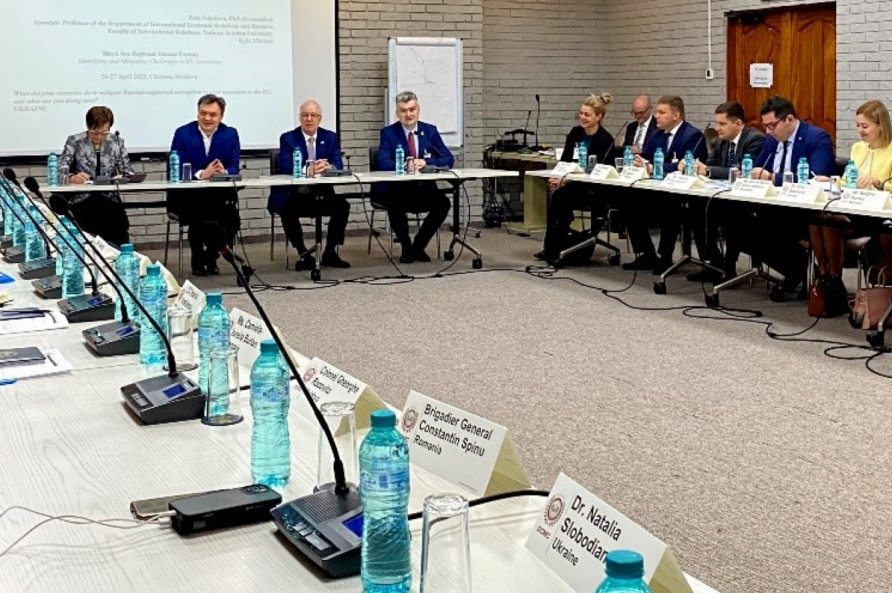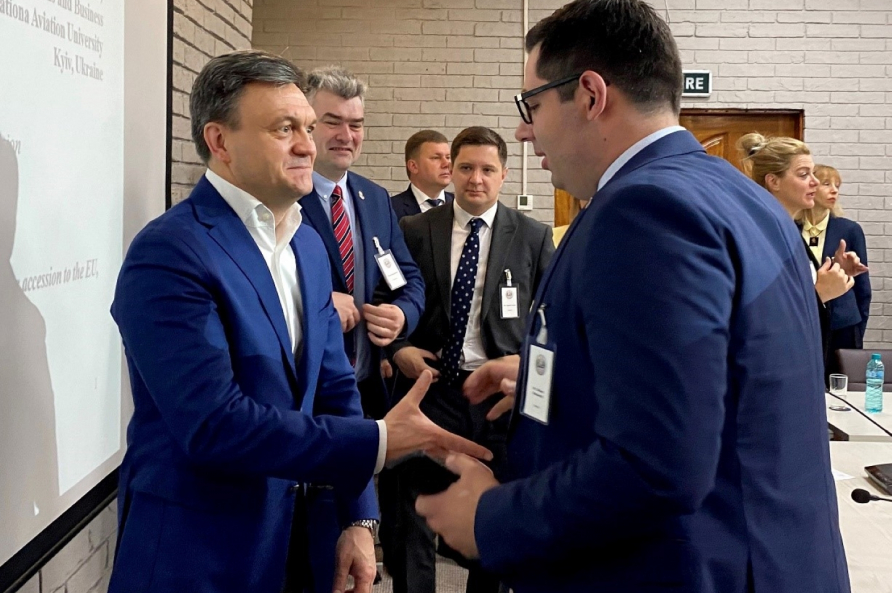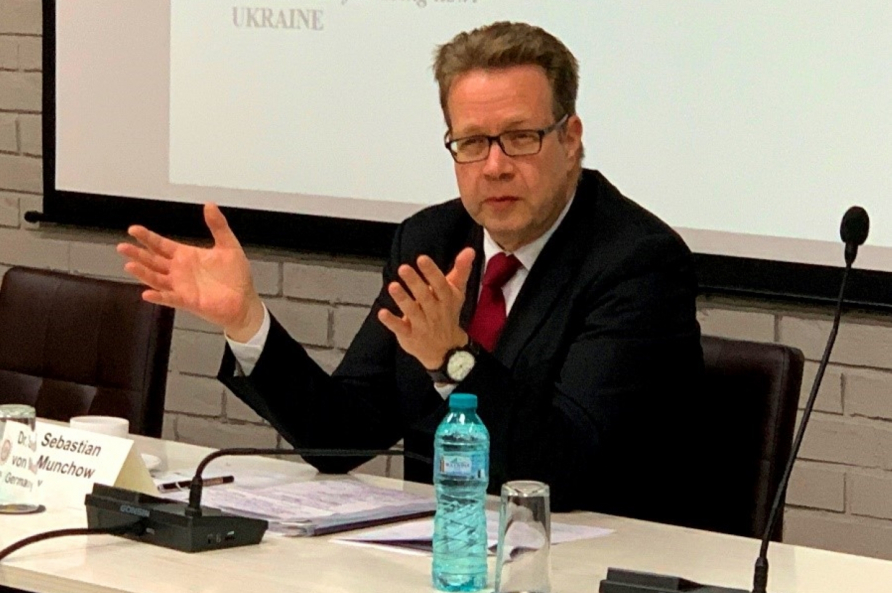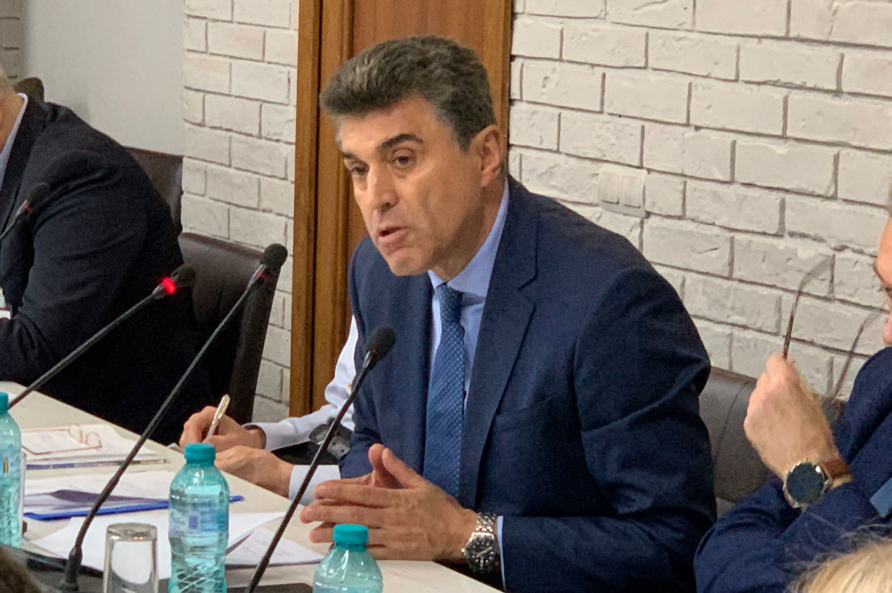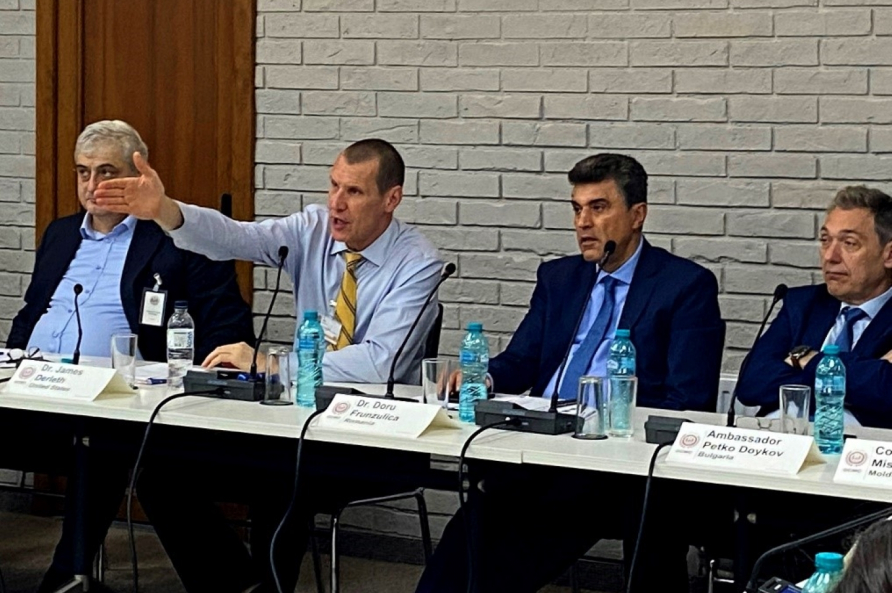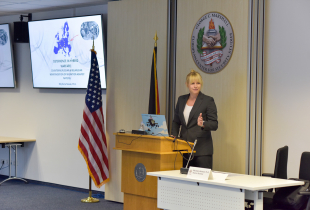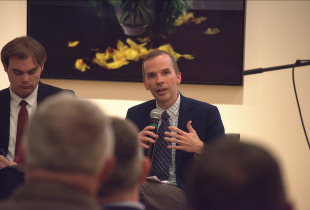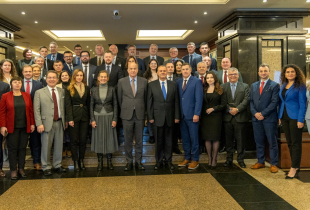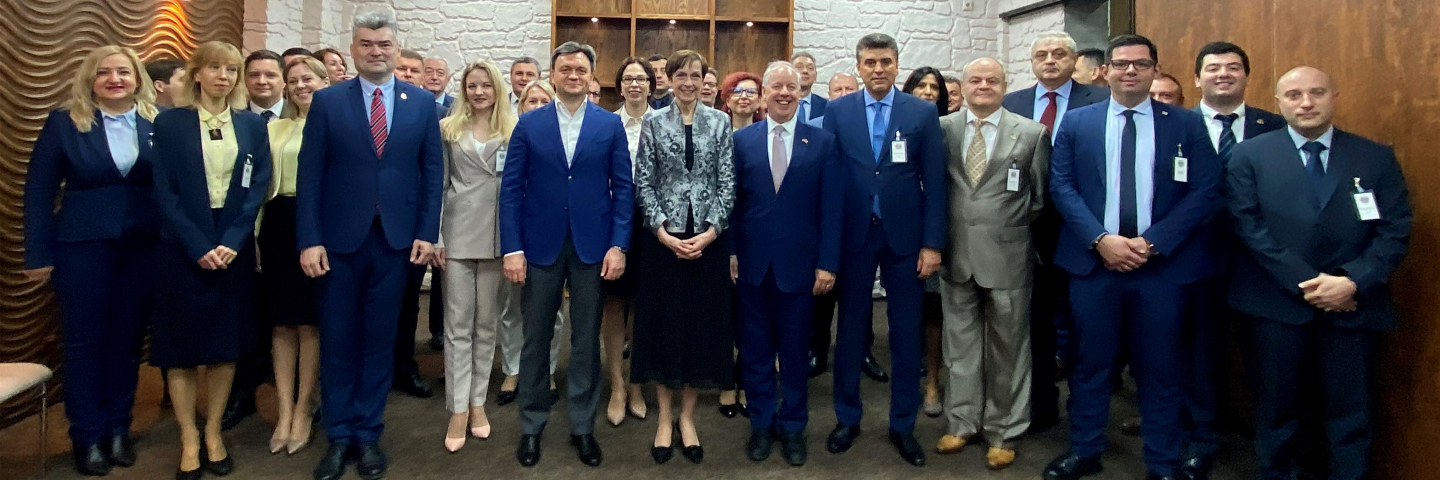
Marshall Center Holds Regional Alumni Forum in Moldova
The George C. Marshall European Center for Security Studies wrapped up a two-day Black Sea Regional Alumni Forum on the topic “Identifying and Mitigating Challenges to EU Accession,” held in Chisinău, Moldova, April 26-27.
The forum, eighth in a series of alumni engagements in the region, provided a platform for Marshall Center alumni to identify and mitigate challenges Black Sea states face in their efforts to become European Union members, and to identify the roles that Romania and Bulgaria play in supporting them.
The Moldovan Prime Minister Dorin Recean, U.S. Ambassador to Moldova Kent Logsdon, and German Ambassador to Moldova Ms. Margret Uebber provided opening remarks at the event, which brought together over 39 Marshall Center alumni.
“I’m not an Alumnus, but I wish I was. We would like to thank the U.S. and Germany for supporting Moldova in its endeavors,” said Recean, addressing the event participants.
“The Marshall Center is one of our best assets.” Logsdon said. “As a community, we’re lucky to have it. EU accession is something we’re very interested in supporting.”
The event focused on EU membership aspirations by three Black Sea states and best practices gained from the EU accession negotiations from Romania and Bulgaria. The participants also discussed Russian interference, expectations from Brussels vs. realistic expectation management, the economic impact of the countries of the Black Sea region, hybrid threats and societal resilience.
“The level of dedication to the reform process to meet the EU standards is clearly there,” said European Security Seminar East Course Director Dr. Sebastian von Münchow, who moderated a panel discussion on European Accession. “I was impressed by how concrete and tangible the discussions were for their governments to pursue the negotiations with Brussels-based institutions. I see this conference as complementary to the developments regarding the recently gained candidate status by Ukraine and Moldova and the expected candidacy status in view of Georgia.”
“It is important to have Moldova, Ukraine and Georgia in the EU, after they implement the acquis communautaire and respect the criteria for membership,” said Romanian Alumni Dr. Doru Frunzulica, who presented and moderated a discussion on Experiences of Romania and Bulgaria in EU Accession. “Since 2010, Romania has been working with Moldova on their EU integration.”
Romanian Alumni Ina Filote, during a discussion of country perspectives said, “I would stress the impact of the Marshall Center and other institutions. The first step is to educate. We’re here as a product of this Center and it’s part of our responsibility to disseminate what we’ve learned.”
On day two, the Alumni forum focused on the Grey Zone with Seminar in Irregular Warfare/Hybrid Threats Course Director Dr. James Derleth leading and moderating the presentation. Derleth highlighted the need to identify the tactics Russia uses to foster internal and external opposition to EU membership, and how to mitigate those challenges, referring to NATO’s Comprehensive Approach to national security.
Dr. Derleth said “the key challenge is to identify threats which are in the grey zone between war and peace that avoid crossing the threshold which leads to open conflict.”
The George C. Marshall Center for Security Studies, founded on June 5, 1993, is a renowned international security and defense studies institute. A bilateral partnership between the U.S. and Germany, it is a lasting cooperation that promotes dialogue and understanding among the nations of North America, Europe and Eurasia. In 2023, the Marshall Center marks its 30th anniversary, re-emphasizing its commitment to carrying Marshall’s vision, an enduring legacy that continues through the security education initiatives of the Center.
